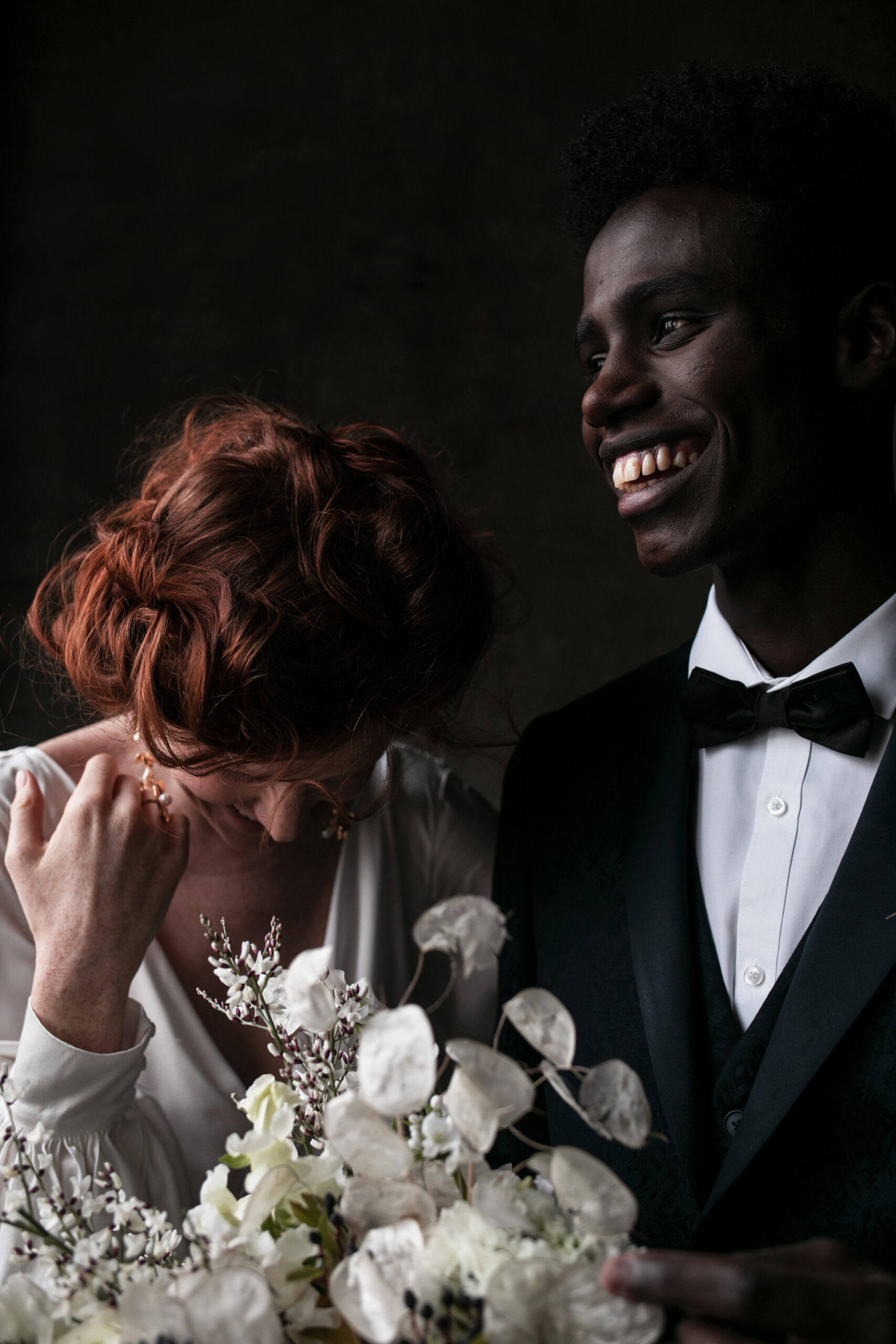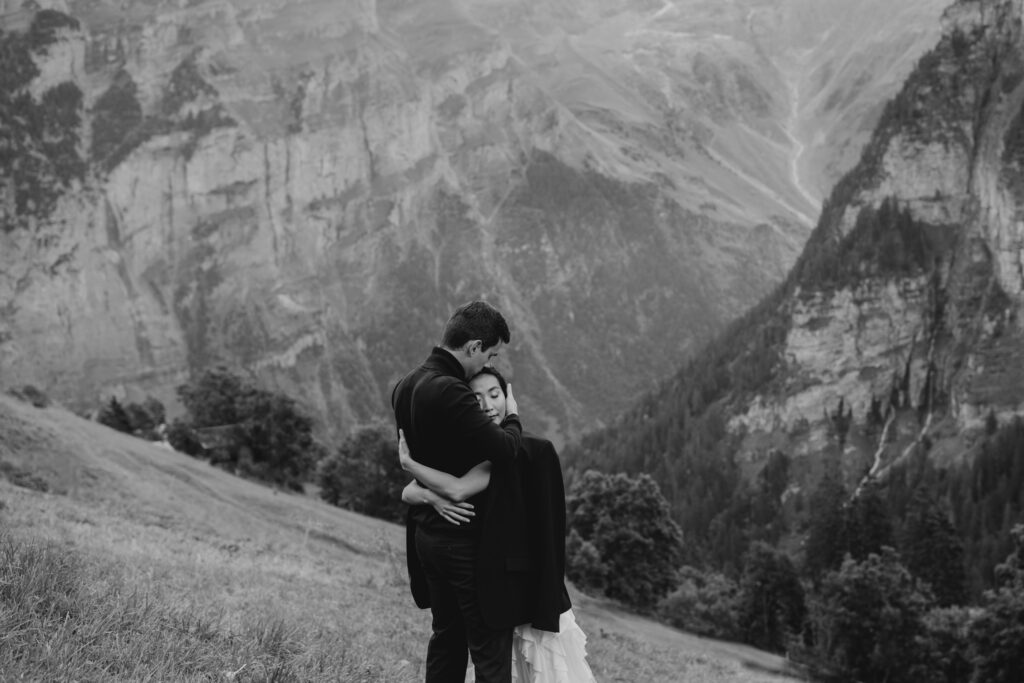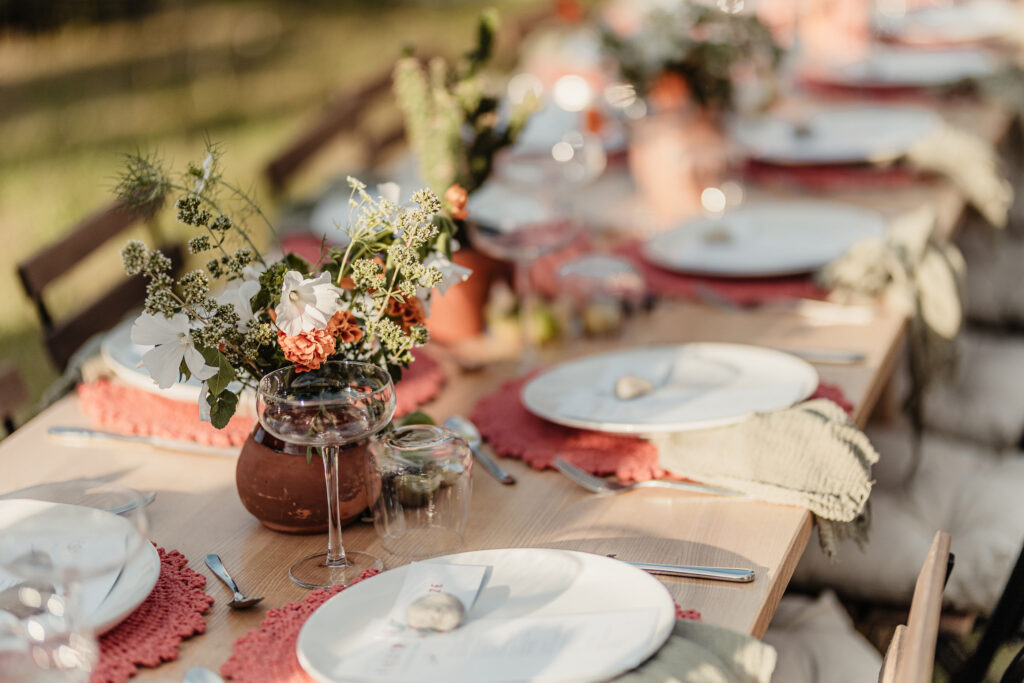
A Dutch and a Mexican take a walk hand in hand while their 2 kids (who speak 4 languages fluently) playfully jump ahead. A Korean and a Swiss meet in Australia, get married and move to the States. An English-Swiss Third Culture belle and a Congolese beau have their first dance. A French and an American meet in Italy to then elope. A Dominican and a Swiss meet in Canada and fall in love amidst a group of global citizens. What are the chances? It seems unlikely, but I could go on with stories like these… As people are more prone to global mobility and global relationships, intercultural weddings are happening time and again and with them the celebration of love without barriers or conventions.
There is a richness and utter beauty that comes from two people from different backgrounds, cultures, traditions, language and ethnicities joining in love and deciding to spend their lives together, yet it is exactly those things that can become a test when organising a wedding, not only for the couple but also to the families.
After traveling and working in many countries and assisting many cross-cultural couples in their weddings (and planning two for ourselves), I have come to learn what is important and how to best plan a cross-cultural celebration. And since a former client, who recently got engaged asked me to, I thought I will share some of those things, in the hopes that it will help you as you start planning for your wedding or elopement.
Here we go!

Communication:
Communication is essential in any relationship! And in an intercultural marriage even more! As I said before, there is a richness and a beauty about the fusion of cultures in a marriage, which can also offer the potential for growth, both personal and in the relationship. But cultural issues may lead to conflict and those challenges can be heightened if you have a language barrier, long distance relationship or strong-willed families. Even before starting planning your ceremony, make sure to pinpoint and clarify the different cultural traditions and values you and your families believe in, that you might be more open and understanding of each other and your families. Talk about the commonalities and the aspects of the other culture that are drastically different. Talk, listen and approach every aspect with an attitude of a learner, a playful curiosity and a grateful heart for one another and everything that you bring! And remember, compromises need to be made in order to find a way to fulfil both parties’ interests, but at the end, don’t compromise on what’s essential for you as a couple!
Engage and celebrate both cultures:
It is essential to know, understand and embrace each other’s roots! Celebrating your culture is about celebrating you who are, where you are coming from and your journey. It is also about celebrating the bond between you, between two worlds, between two families. Include your family in the planning process, encourage them to share how their respective cultures celebrate marriage, what are the most important traditions and what is the significance behind the symbols used.
Working to create a wedding that celebrates the differences and the unique ways of cultural wedding traditions will only make your day more unforgettable, so find a way to incorporate those details in a way that is personal to both of you.
Is the groom from a Jewish background? Consider having the Seven Blessings, the breaking of the glass, or having a beautiful floral chuppah for your ceremony! The Hora or the Mesinke during the party can also be options!
One of you is from an Indian background? Have a Mehendi ceremony with your bridesmaids or a Varmala exchange during the ceremony. Include a Sangeet Party after the reception! ( And please invite me to see it!)
Are you or are you coming from a Christian upbringing? Consider lighting a unity candle, exchanging bread and wine before your vows, and wash each other’s feet.
Chinese? Have a tea ceremony (perhaps a modern version seeamlessly included in the ceremony or reception) Want to wear red but still want to marry in white? Change into a red gown for the reception! Or do two ceremonies!
From Japanese parents? Why not do the San San Kudo ceremony in a custom made sake set that you can keep to celebrate each one of your anniversaries?
I love the lazo exchange in Mexico and other LatinoAmerican countries, symbolizing an everlasting union! Making a beautiful garland for the lazo and having someone close to you, either your maid and man of honour, your parents, or the priest/officiant placing it over you two could be a beautiful element after your vows!
Coming from a Nigerian family? My favorite tradition is the tasting of the four elements, where the couple get to taste four flavours representing distinct stages within a marriage: cayenne for spiciness, lemon for sourness, vinegar for bitterness and honey for sweetness. I find the symbolism absolutely poetic as the newlyweds vow to remain united for better or worse, for richer or poorer, in sickness and in health. There are infinite ways of celebrating your culture as part of your identity during your wedding! Whether that be in your attire, your ceremony rituals, the music, having cultural performances, having food from both countries (my absolute favorite!), just have fun and make sure that you are intentional about those! Also, make sure your guests understand those cultural elements!

Consider premarital counseling:
If I could give one advice as you prepare for your wedding is to get premarital counseling.
Planning your wedding is an exhilarating experience but one cannot lose sight that investing in your marriage is even more important. Getting premarital therapy can help you communicate better, understand the impact of our upbringing on money, sex, family boundaries, in-laws, parenting and more.
I can definitely say that doing pre-marital counceling before our wedding, helped us to understand each other better and to have more grace, trust and empathy for each other, all things that are essential for a successful and long lasting marriage.
Make it personal:
Find a blend of traditions and rituals that you connect to. Making sure you are respecting both cultures, you can personalize those elements to speak about your journey as a couple. It’s not about making your culture or background a theme for the wedding but more about merging those with your overall look and atmosphere.
One example: Food and conviviality is very important for us, so for our wedding, we had traditional desserts not only from the Dominican Republic and Switzerland but also from other countries we have visited.
Another example, for a cosmopolitan couple where one has Jewish upbringing, you could adapt the Seven Blessings and have close friends declare them in their mother tongue.
Are there any fun traditional dances from where you are from or where your parents are from? Consider teaching the choreography to your guests to kick off the party!
Remember it’s your day:
One can get lost trying to please everyone who has an opinion or idea about your wedding. Your parents, the well-meaning aunt or the cousin might express how they want things to be for your wedding day. Receive all the help you want and listen, but kindly remind them that it is your day and stand your ground to the things that are important to you.

Surround yourself with a trustworthy team of vendors:
Oh do get a great team to support you in the process!!! It would make all the difference in the world! Make sure that every person, from the venue proprietor to the caterer, the florist to the photographer, the officiant to your stationery designer, everyone involved, understands the importance of the cultural elements you want to include.
Ask questions and hire people with whom you connect well, vendors who would go above and beyond to ensure your day goes well! Should you encounter negativity or the slightest opposition about the multicultural components of your wedding, move on and find people who are supportive, curious and excited about collaborating with you for your wedding celebration.
Consider hiring a planner:
Planning a wedding is a lot of work! Count 200 to 300 hours of planning endeavors with all the complexities of cross-cultural elements and you have a wonderful mix for sleepless nights, stress and anxiety!
In order to fully enjoy the planning process and your wedding celebration, hiring a planner is the wisest thing to do.
Hiring an experienced multicultural wedding planner who has a high level of cross-cultural awareness, someone who understands the nuances and significance of your traditions and culture and who is willing to research and dig deeper into them, is vital for having a successful planning and wedding day!
There is a lot of knowledge and insight that comes with experience, and having an intercultural marriage myself, having experienced many cultures in my travels, attending and helping planning many intercultural weddings, I can confidently say that I’ll be a great ally to have alongside you as you start your wedding planning process!
I’ll know what to consider, what unique ideas to bring, how to create a day that reflects who you are and let’s be honest, also being an intermediary between families, all in all to take care of you and all the things needed to pull off the celebration that you want and deserve!
So let’s talk! I would love to hear more from you and help you create a beautiful celebration!
7 tips for planning a cross-cultural wedding
With all my love, Eva
about avodah
Avodah is a full service wedding planning & design studio in Lausanne, Switzerland , serving locally as well as Italy, France and Dominican Republic. We specialise in intimate, refined and meaningful weddings and gatherings that foster connection and conviviality.
To us, first and foremost, celebrations are about experience, and we want to design thoughtful, intentional weddings and gatherings that celebrate who you are and are a reflection of your journey.
Hi, I'm eva, the founder & creative director of avodah
our services
portfolio
homepage
Get in touch and let's talk
contact us
Home
Services
About
Portfolio
contact us
Blog
Poiema
FAQ
Site privacy
Avodah is a full service wedding planning & design studio in Lausanne, Switzerland , serving locally as well as Italy, France and Dominican Republic. We specialise in intimate, refined and meaningful weddings and gatherings that foster connection and conviviality.
© Avodah 2023 | website design by hnstly.co